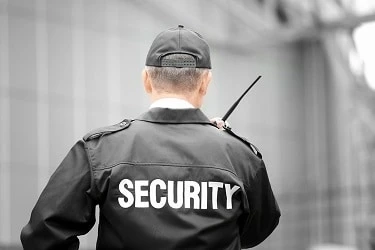Retail security guards play a vital role in ensuring the safety and security of retail establishments. Their duties encompass a wide range of responsibilities aimed at protecting the store, its employees, customers, and merchandise. Here are the primary duties of a retail security guard:
1. Preventing Theft and Shoplifting
One of the foremost responsibilities of a retail security guard is to prevent theft, including shoplifting. Guards often maintain a visible presence in the store, which acts as a deterrent to potential thieves. They may also monitor surveillance cameras and security systems to identify suspicious behavior.
2. Monitoring Customer Behavior
Loss Prevention Security guards are trained to observe the behavior of customers. They look for signs of suspicious activity, such as nervousness, excessive browsing, or attempts to conceal merchandise. Guards can then intervene or alert store personnel when they suspect theft.
3. Asset Protection
Guards help safeguard the store\'s assets, which include merchandise, equipment, and inventory. They actively work to prevent theft and minimize losses through proactive monitoring and prevention.
4. Access Control
Security guards control access to the store, ensuring that only authorized personnel and customers enter. This may involve checking employee credentials, verifying identification, or operating access control systems.
5. Bag Checks
In some stores, security guards may conduct bag checks at exit points to deter theft and ensure that customers are not leaving with unpaid merchandise.
6. Customer Service
Many retail security guards are required to provide a degree of customer service. This includes assisting customers with directions, answering questions, and helping to create a positive shopping environment.
7. Crowd Management
During peak shopping seasons or events, security guards help manage crowds to ensure that the store does not become overcrowded. This prevents safety hazards and maintains order.
8. Conflict Resolution
In situations where disputes or conflicts arise between customers or employees, security guards can use their training in conflict resolution to defuse tensions and prevent incidents from escalating.
9. Emergency Response
Security guards are prepared to respond to various emergencies, such as medical incidents, fires, or security threats. They may provide initial aid, coordinate with emergency services, and maintain order during crises.
10. Communication
Guards maintain effective communication with store personnel and management. They report any suspicious activity, incidents, or potential security breaches promptly.
11. Technology Operation
Many retail stores use surveillance cameras, alarms, and access control systems. Security guards operate and monitor this technology to ensure that it functions effectively.
12. Preventing Employee Theft
Retail security guards also play a role in deterring and preventing employee theft. They may conduct employee bag checks, monitor employee behavior, and report any suspicious activities to management.
13. Report Writing
Guards maintain detailed incident reports, documenting any security-related events or issues. These reports are valuable for insurance claims and legal purposes.
14. Regulatory Compliance
Security guards assist stores in adhering to local, state, and federal laws and regulations related to security, privacy, and safety standards.
15. Loss Prevention Strategies
Security guards work in collaboration with store management to develop and implement loss prevention strategies. This includes training employees on security measures and identifying vulnerabilities.
16. Patrols
Security guards may conduct regular patrols within the store to ensure that all areas are secure. They check for unlocked doors, security system malfunctions, and other potential security issues.
17. Deterrent Presence
The mere presence of security guards acts as a deterrent to potential thieves and troublemakers. Guards patrol the store, interact with customers, and maintain visibility to discourage unwanted behavior.
18. Maintaining Order
Security guards are responsible for maintaining a safe and orderly environment within the store. They intervene in situations involving disruptive or unruly customers and ensure that store policies are followed.
19. Detaining Suspects
When necessary, security guards may detain suspected shoplifters or individuals involved in criminal activities until law enforcement arrives. They do so within the bounds of the law and company policy.
20. Risk Assessment
Security guards are often tasked with assessing the security risks specific to the store\'s location, layout, and merchandise. They may recommend security enhancements and improvements.
21. Operational Support
In some cases, security guards provide support during store opening and closing hours, including checking security systems and ensuring the store is secure.
22. Training
Guards may participate in ongoing training programs to stay up-to-date on the latest security procedures, technologies, and methods of theft prevention.
In summary, retail security guards Melbourne are essential in maintaining a secure and safe shopping environment. They actively work to deter theft, prevent loss, and ensure the well-being of customers and store personnel. Their duties encompass a wide array of responsibilities, making them a vital part of the retail industry\'s loss prevention and security efforts.



